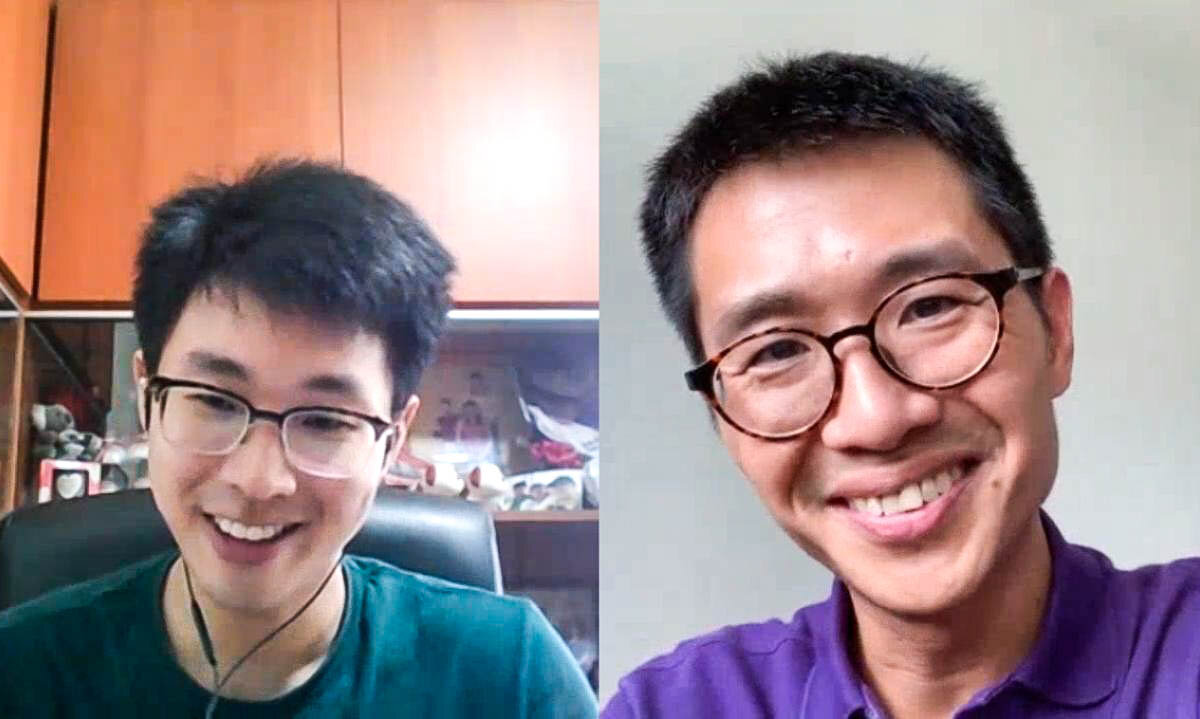This is the third of a seven-part ‘Project Y to Z’ series.
Project Y to Z is a ground-up initiative spearheaded by three university students—Jessica Lee and Ray Leow from the Singapore Management University (SMU), together with Lim Xuan Zheng from Nanyang Technological University (NTU). They may be a small team of three, but their ambitions for this initiative are far from small. Their hope is for Project Y to Z to be a community catalyst that brings Gen Yers and Zers closer together by sharing experiences, encouraging interactions and sparking conversations. In this project, they lay bare the realities of past job search experiences told by Gen Y 2008 graduates in Singapore who survived the Global Financial Crisis and lived to tell the tale.
By Jessica Lee, Class of 2020 Graduand, SMU Lee Kong Chian School of Business
Joining us for our second Project Y to Z sharing is Singapore Management University (SMU) alumnus Aldric Chen. Aldric is currently a Regional Business Analyst at JCDecaux and a class of 2008 graduate from the Lee Kong Chian School of Business. Outside of his full-time job, Aldric serves as a value advocate, webinar speaker and a mentor to many. With his wealth of experience and knowledge, we had the pleasure of learning about Aldric’s approach to the job hunt during the Global Financial Crisis.
Here are 3 key things you will learn:
- Have a goal, plan ahead and work towards it relentlessly—don’t stop.
- Always think of how you can add value to your work.
- Grow your digital presence.
Read on for his responses to our burning questions!
What went through your mind when you heard about the recession back then in 2008?
I’m screwed. Big time.
When Lehman Brothers started falling around 2007 September/October, I had already started my final year. While I was doing my job applications, I could sense that hiring was stagnating. Operations headcounts were beginning to be cut. Different regional and country offices were moving out of the country to focus on their core operations at their headquarters.
In early 2008, I came to realise that the job market was going to contract. There was immense pressure on the employment market. Not only did we have more and more people entering, we observed less and less jobs available. In other words, demand for labour was drying up but the number of job seekers was increasing the salary offered would be reduced.
As I reached the last 100m of the 400m university sprint, I realised that the finish line was not there. It was worrying. It was terrible because I couldn’t see through the fog. It was very clear that the market was now under stress due to a banking crisis, but I couldn’t see beyond that. So there was a lot of anxiety.
How did you spend the time during your job search?
I looked through all possible opportunities that would allow me to earn some money.
I even forked out $700 to sign up for one module in summer class. At the same time, I started to reach out to the professors who I am closer with and offered to write research papers.
The second thing was to contact every single professor who was offering a module, especially for modules I aced. So in one month, I was actually spending five days a week in school, taking classes and working as a teaching assistant. My initial cost outlay was $700, and I got a lot more out of that—about $2,000 I think.
The job applications took a while, so I started reaching out to marketing research companies, and told them I observed that there was a lot of focus group discussions going on and asked if they needed participants. In tough times, however, people look for money-making opportunities more intently and I realised that being a participant wouldn’t really work out. So I pivoted and asked if they needed moderators. I’m a good communicator and can get people to focus on the topics.
I did a lot of such things until I signed the contract for my first job in September. The last day of summer class was at the end of June. I had two months—July and August—that would burn a hole in my pocket if I did not do anything, and September wasn’t guaranteed either.
Hence, if you know that the odds are against you, I suggest that you don’t hold back on trying things. You ought to spend your time meaningfully.
What was your first job and how was it like?
I signed up to be a management consultant at Accenture because that was what I wanted to do. As there weren’t many management consulting projects, HR asked if I was okay with tech projects. At that point, I was an absolute “Techno-saurus”—I knew nuts about tech. One thing I understood, though, was that payroll in itself is a pressure.
If you can’t add value to the company, when the axe comes, you’re not far from the queue.
I made a decision, stuck my neck out and I went with it. Everything was very difficult because I knew nothing about tech, meaning to say I knew nothing about coding, interfacing, user interface, integration whatever that was required.
The first two years in my first job came with no pay increment. We, the new joiners, lamented, but we understood that the external environment wasn’t going to be very friendly to us as we were quite redundant. The only reason we got hired was because our hiring cost is way lower than experienced personnel. Let’s just say that we were self-aware.
We put in many hours—but, of course, that’s the nature of the project. Seventeen-hour workdays were very common. Basically, I wake up, I take a cab, go to the office, work a full day and then when I leave the office, I take a cab home and I sleep. At the end of the year, there was no bonus, I remember in my very first year, my bonus was just a CapitaLand mall voucher with a $500 rebate or discount zero, and that was it. As good as zero. In my second year, I was eligible for promotion—that didn’t happen too because they were very tight on the internal budget.
For your peers and yourself, I will say this: there are many pathways to your goals, ambitions and other achievements. Climbing the corporate level is just one, and if you do choose that route, understand one thing—it is not a given. Understand that the big companies, startups and other small companies are all on a cash crunch. If you’re hired, understand that in your first two years, probably your third year as well, things are going to be very difficult. It will be a lot of giving. Your contract might say 9-to-6, but it’s likely to be 9-to-9, which is going to be normal and there will be some days where you do get to go off earlier.
So these are the odds that were stacked before me. That said, these are the things that will pan out and I’m pretty confident this is going to be the case. This is based on my experience in 2008, as well as what I personally also went through during the 2003 SARS situation in Singapore and Hong Kong, as well as the dotcom era—the playbook is always the same.
What were your key learnings from this experience?
In times like this, your survival will mark you as a person.
If you are an entrepreneur, consultant, independent consultant or freelancer of sorts, the ability for you to size that and navigate in times like this will give you immense confidence because you are going to walk away thinking: during tough times I survived, I made it, I didn’t die; so for the good days, I’m going to win it.
Clarity and the call to action too. I tell my coachees and my mentees that if you are on a call with me, don’t give me the BS. If you’re weak mentally, no one can help you. For those who do high-performance coaching with me, I would be especially direct and call out rubbish. Tell me, how much effort are you really putting in during the tough times? If you are running a home business, your own show, or your own sales team, I only want to know one thing: how many hours are you actually putting in to help your team, your company and your manager? If you can’t answer that question and all that you want to talk about is, “you know, the client is cheap, times are tough, they don’t want to buy, they don’t want to pick up my call”, I would say that I’m not interested in coaching you. That’s reality. In times like this, your character needs to come out. It has too.
I think it is absolutely audacious to keep thinking about work-life balance, 9-to-6, a good salary and things like that—those are not going to happen. Chances are, you will still have to think about going to school, doing assignments, sending your job applications, being a teaching assistant, finding your freelance jobs, and keeping yourself occupied even if it means going out to give tuition to children. You have to do it because you’ve got to do it. Sitting back, today, waiting for better times to come around is the exact wrong thing to do. If you want to win the competition in spring and summer, my friends, it’s not about hibernating in winter, it’s about training in winter, and giving yourself an absolute advantage, to put yourself at the front of the queue when things turn around.
You want to show other people and your future prospective employers that even in tough times, I’m moving. Even in tough times, I’m doing my best. Even in tough times, my startup works. I’m investing my time. I’m not waiting, I’m in motion.
That will be the best story you can ever tell your future employer. Whatever I’m saying is tough. if you’re the kind who only goes to school a couple of days a week because you have one morning lecture on Monday, one afternoon lecture on Tuesday, and you want to enjoy all your free time, what I’ve just told you will be a very bitter pill to swallow.
If we laze around in good times, we will be crushed in bad times as we would not know how to ride the wave.
How can graduates make themselves more employable?
Build your digital presence.
Most of us are living our lives either on all seven major social media platforms and some. Getting an online presence is important, I’m not telling you to be a social media addict, but you want every single edge to get an opportunity against a very, very competitive and stiff employment market. Today is bad, tomorrow is worse, the next day is going to be even worse.
As the social media platforms get more mature, there are more and more opportunities for fresh graduates to showcase your thought processing through the content you generate—it is a really underrated way to show to your prospective employers through the articles you write that ‘I’m mature, I know what I’m talking about’. If I post a video, you know the way I speak—I’m articulate, I’m confident. Give yourself every single edge and let your reputation speak for you—in other words, aim to let people know you before they know you. You will have a very good chance. Now, I’m not saying that things will definitely come your way, but it will help you greatly if you can stack the bets such that you have the upper hand. There is no free lunch in the world—that is the whole spirit of capitalism, you’ve got to build your own advantage.
Before I actually float my CV to the hiring manager, they already have a positive impression of me based on the content I’ve posted. They already know that I’m mature, they know that I’m articulate, they know that I’ve spent time building something online.
It’s important that people know you—not what you do but what you believe in. Do you believe in clarity, do you believe in perspectives, leadership, enlightenment, abundance. If you believe in it, write a post so that people know you over time. If people know you, it builds all the advantages that you need.
What is one last additional thing you feel our job seekers need to know?
At times like this, if you go for an absolute payroll job, you might not get it. It is going to take time to come. So where are the job openings? If you are aware of the job market, you’ll understand that there are a lot of companies hiring salespeople. Why? Because they are paid on commission. Basically, if you can’t close the deal, you don’t get your commission and there’s no cost to the company. Do not be averse to that, try it.
Even if you fail, it’s not going to kill you.
But if you do, you will understand the important business lessons: on networking, communicating, talking about your offer, negotiating and closing.
This article was originally published on LinkedIn and has been republished with permission.








